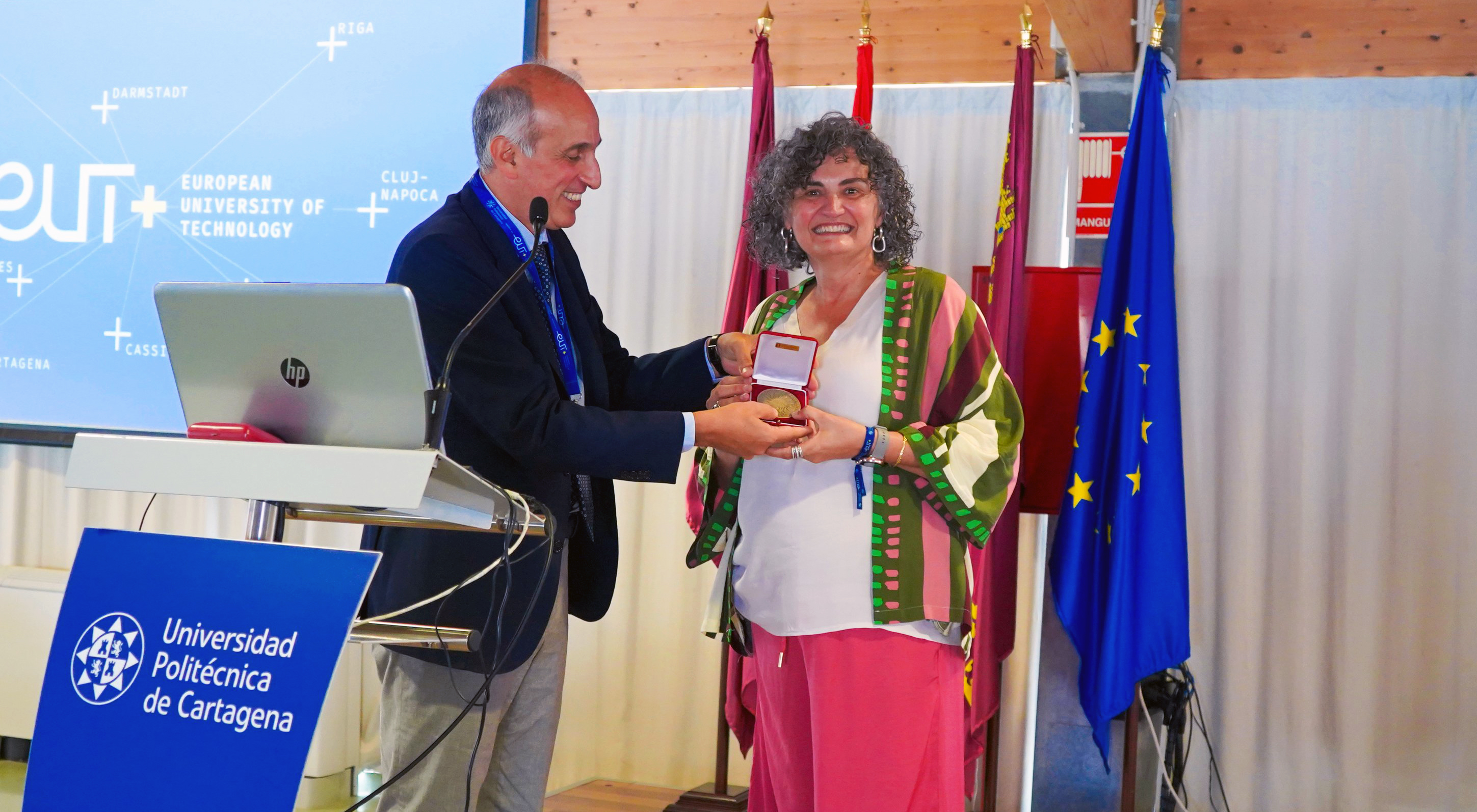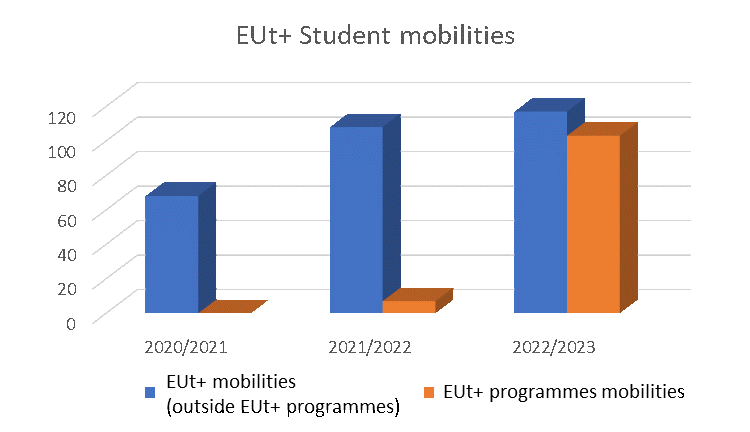The representatives of the 9 universities have been able to know the main objectives and indicators achieved, among which stands out the remarkable increase of students who have participated in the mobility maps designed of the alliance

After three years of intense work on an initiative involving the technological universities of Troyes (France), Cyprus, Sofia (Bulgaria), Cluj-Napoca (Romania), Dublin (Ireland), Riga (Latvia), Darmstadt (Germany) and Cartagena (Spain), the leaders of the eight work packages and task managers of the project have presented during these days the main achievements and indicators that will be reported to the European Commission for assessment later this year. These conferences were also an opportunity for Beatriz Miguel Hernández, the rector of Cartagena to host, for the first time, the rector of UNICAS - Università degli studi di Cassino e del Lazio Meridionale, Marco Dell’Isola who will join officially the alliance on the 1st of November as the ninth partner of the alliance.
Throughout 8 plenary sessions, all the objectives and actions that shaped the first EUt+ project that started in November 2020 have been deeply assessed, highlighting the achievements, the outstanding tasks, as well as the deviations or modifications that have had to be implemented to contribute to the success of the initiative. It is worth mentioning the high number of complementary projects that, derived from the collaboration between the universities of the alliance, have been funded in several European calls, mainly from Erasmus+ programmes (Alliances for Innovation, Cooperation Partnerships), pillars of Horizon Europe (Marie-Curie Actions - COFUND, Staff Exchanges), and European Innovation Council. In summary, 55 submitted projects and 11 in preparation with a successful rate about 60%.
The opening up of the 6 EUt+ programmes for students (Telecommunications and Networks, Mechanical Engineering, Civil Engineering, Industrial Engineering, Architecture, Food science and technology and Bachelor of Science in Sustainable Development) has greatly facilitated student exchanges through mobility maps designed by universities in common thematic areas as we can see in the chart below. Three new EUt+ programmes were approved during the Rectors’ Board this week to strengthen the offer of courses for students: Bachelor in computer science, Master in microelectronics and Master environmental engineering.

Staff mobility between EUt+ members has increased exponentially with only 12 staff mobilities from Spring 2021 (first semester after the start) to 342 in Spring 2023.
One of the backbones of this alliance is the inclusion of topics on equality, diversity, inclusion, multiculturalism and multilingualism. The Secretary General of the Alliance, Timothée Toury, has pointed out that “the conclusions discussed this week will not only enable the preparation of the supporting documents for the first phase of the project, but also facilitate the design of the roadmap for the activities of the second phase which will start in one month”.
The week ended with the meeting of the EUt+ rectors with various representatives of multinational companies, the consul of Latvia for the Murcia Region, Alberto Gallego, and the ambassador of South Korea for Spain, Bahk Sahnghoon, in order to show outwards the objectives of the alliance and build new bridges of collaboration with socio-economic actors.
Aligned with the European spirit and alongside these sessions, EUt+ is celebrating today the European Researchers’ Night with a EUt+ corner run by Spanish, Bulgarian and French team in Cartagena, local events in Cluj-Napoca and Cassino.
Aligned with the European spirit and alongside these sessions, EUt+ is celebrating today the European Researchers’ Night with a EUt+ corner run by Spanish, Bulgarian and French team in Cartagena, local events in Cluj-Napoca and Cassino.